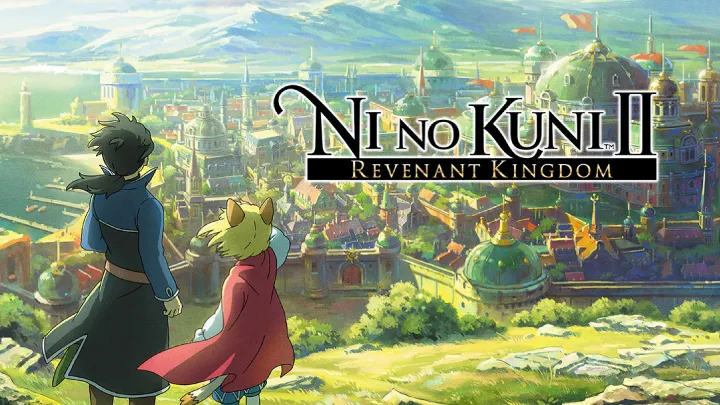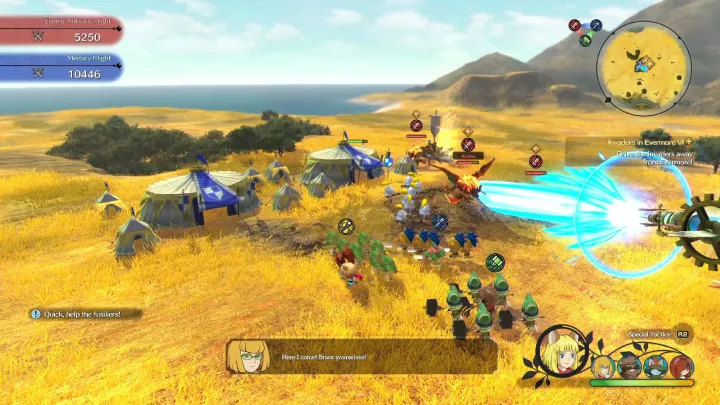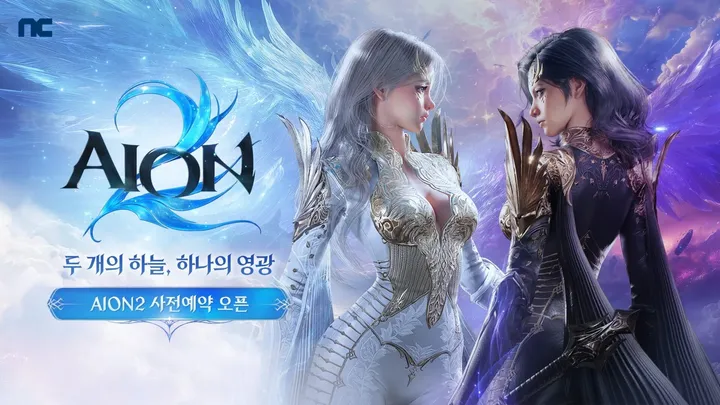
Introduction
Ni no Kuni II: Revenant Kingdom is not only a vibrant RPG filled with whimsical creatures and breathtaking landscapes; it is also a profound exploration of leadership, governance, and the responsibilities that come with power. As players guide Evan Pettiwhisker Tildrum, the young king of Ding Dong Dell, on his quest to build a new kingdom and restore peace to his world, they encounter a variety of challenges that force them to confront the intricacies of running a society. This article aims to delve deeply into the themes of leadership and governance in Ni no Kuni II, examining how they are portrayed through the narrative, character relationships, and the gameplay mechanics, ultimately reflecting real-world complexities within the framework of a fantasy setting.
Setting the Stage: The Rise of a Young King
The Background of Evan Tildrum
Evan, a young kitten and rightful heir to the throne of Ding Dong Dell, begins the game in a state of vulnerability. Following a coup orchestrated by the treacherous Duke Evan faces not just physical displacement but also a profound emotional and psychological journey. This initial scenario sets the stage for the themes of growth and governance that will unfold throughout the game.
- Loss and Ambition: Evan's journey starts with immense loss—the death of his father and the usurpation of his kingdom. This experience is not just a narrative device; it serves to frame his ambitions. As he seeks to regain power, players are introduced to the moral dilemmas associated with leadership. Should he pursue revenge, or is there a wiser path toward building a better future?
- The Weight of Leadership: From the outset, it is evident that Evan is not simply a ruler by birthright but must evolve into a leader who understands the complexities and responsibilities of governance. His character development is crucial to the game’s exploration of leadership, emphasizing that true kingship is earned rather than inherited.
Evan's early experiences prompt players to reflect on the qualities necessary for effective leadership, setting the tone for the challenges ahead.
The Call to Adventure
Evan's journey truly begins when he decides to seek out allies and restore his kingdom. This quest becomes a crucial turning point, as players witness his transformation from a sheltered prince to a proactive leader, striving to unite the diverse factions of his world.
- Building Alliances: As Evan travels to different regions, he encounters various characters—each with distinct backgrounds, cultures, and desires. The necessity of forming alliances highlights the importance of leadership in governance; it is not enough to rule through fear or power. Instead, Evan must earn the trust and respect of others through cooperation and empathy.
- The Age of Reason: The game's narrative emphasizes that effective leadership is no longer about direct control but about reasoning and negotiation. Players are often required to make choices that prioritize alliance-building and conflict resolution, reinforcing the idea that modern governance requires collaboration over domination.
This initial phase of Evan's journey underlines the foundational concepts of leadership that will play a significant role as the game progresses.
The Challenges of Governance: Economic and Social Responsibilities
Resource Management and Kingdom Building
One of the most significant gameplay elements in Ni no Kuni II is the kingdom-building mechanic, where players govern their realm, manage resources, and make critical decisions affecting their citizens. As Evan establishes his kingdom, players must understand the importance of economic stability for effective governance.
- Resource Allocation: Managing resources such as money, materials, and manpower are vital for developing the kingdom. Players must decide how to allocate resources strategically to promote growth and improve citizens’ quality of life. This reflects the real-world challenges leaders face when balancing budgetary constraints with the need for development.
- Economy and Happiness: The game's mechanics highlight how the economy directly impacts the happiness of the citizens. Players must consider various factors, such as the provision of services and the happiness index, to ensure the well-being of their kingdom. This encapsulates a broad truth about governance: the best leaders pay attention to both economic metrics and citizen satisfaction.
By intertwining gameplay mechanics with the themes of resource management, Ni no Kuni II emphasizes that effective governance requires more than charisma; it necessitates an understanding of economics.
Social Issues and Community Engagement
Evan’s journey reveals the importance of addressing social issues within the realm. The game encourages players to engage actively with the citizens, allowing them to understand their problems and aspirations better.
- Listening to Citizens: Throughout the game, Evan’s encounters with various townsfolk lead to quests that often reflect broader social issues, such as poverty, prejudice, and the desire for justice. By listening and responding to these concerns, players learn that empathy is essential for effective governance.
- The Essence of Leadership: Engaging with the community reinforces the notion that true leadership involves understanding the people's needs and addressing their grievances. Evan’s character grows as he becomes more attuned to the social fabric of his kingdom, marking his evolution into a compassionate leader.
Through these interactions, Ni no Kuni II effectively illustrates the complexity of leadership, emphasizing that successful governance requires active engagement with the community.
The Moral Dilemmas of Leadership
The Theme of Power: Pristine or Corrupt?
As Evan embarks on his quest to reclaim his kingdom, he faces moral dilemmas that force him to question the nature of power. The game effectively explores whether power corrupts or reveals character, prompting players to reflect on their values and principles.
- Temptation of Power: Several characters throughout the game illustrate different approaches to power and leadership. Some, like Duke Mardor, wield power ruthlessly, while others, like Evan himself, grapple with difficult choices that prioritize the greater good. This variance serves as a reminder that power can be a double-edged sword, capable of either uplifting or destroying.
- Justifications for Actions: The game often places players in situations where they must justify their actions. For instance, players may have to choose between saving a friend at the expense of others or making decisions that may hurt individuals in pursuit of a greater good. This moral complexity forces players to confront their ethics, presenting an unvarnished view of leadership's darker aspects.
By immersing players in these moral dilemmas, Ni no Kuni II offers a nuanced portrayal of power, urging them to grapple with the implications of their choices.
Consequences of Leadership Decisions
The outcome of decision-making plays a crucial role in shaping the narrative. For Evan and his allies, every choice carries weight, affecting not only their immediate goals but also the future of their kingdom.
- Enduring Effects: The game highlights that leadership decisions leave lasting scars, both on the leaders themselves and their followers. For example, Evan must face the ramifications of tough decisions regarding alliances and actions taken in conflict, emphasizing that leaders cannot merely act in the moment without considering consequences.
- Learning from Mistakes: These consequences serve as valuable lessons for Evan. The game encourages players to accept that mistakes are part of a leader's journey, promoting the idea that enduring growth results from facing the fallout of one's choices. This improves the narrative by demonstrating that no leader is perfect; rather, they are shaped by their experiences and the choices they make.
The exploration of consequences serves to deepen the player’s understanding of leadership, encouraging them to think critically about the implications of their actions.
The Role of Allies: Building a Support System
Character Relationships
A Plague Tale: Requiem emphasizes the importance of relationships in leadership, showcasing how alliances can shape a kingdom's future. Evan encounters several allies throughout his journey, each contributing unique abilities and perspectives.
- Character Diversity: Each character Evan recruits offers different skills and insights. For instance, characters like Roland can serve diplomatic purposes and bring different experiences from their backgrounds. This diversity enriches the gameplay while reinforcing the notion that a successful leader benefits from a multifaceted support network.
- Emotional Bonds: The dynamics among characters add depth to the narrative. Evan’s relationships with allies reveal the importance of trust and collaboration in governance. The loyalty and emotional support provided by his companions influence both his decision-making and morale.
By fostering these relationships, the game underscores the idea that leadership is seldom a solitary endeavor. Rather, it requires cooperation and support.
The Importance of Teamwork
As Evan builds his kingdom, the concept of teamwork emerges as a vital component of effective governance. Players witness the power of collective effort and the synergy that can arise from well-coordinated actions.
- Collaboration in Action: Players experience teamwork in combat scenarios where allies provide support and enhancements. This reinforces the idea that no leader can thrive alone; instead, success is achieved through pooling strengths to overcome challenges.
- Shared Goals: The allies share a common vision for the kingdom’s future. Their collective aspirations serve as motivation, reminding players that governance requires not just leadership but also a community committed to achieving shared goals.
Through the exploration of teamwork, Ni no Kuni II emphasizes the notion that alliances matter and that collaborative efforts can lead to remarkable outcomes.
Redemption and Growth: Evan’s Transformation
The Journey Toward Self-Discovery
As the game progresses, players witness Evan's evolution from a hesitant young leader to a confident ruler who understands the complexities of governance. His journey of self-discovery is intricately tied to the moral dilemmas and challenges he faces.
- Accepting Responsibility: Initially, Evan grapples with self-doubt, haunted by memories of loss and betrayal. However, as he confronts challenges head-on, he gradually learns to take responsibility for his decisions. This acceptance of leadership marks a turning point in his character development.
- Embracing Change: The experiences he shares with allies and the citizens he encounters teach him about empathy and resilience. The trials Evan faces force him to reevaluate his beliefs and grow into the leader his people need.
Through Evan’s personal growth, Ni no Kuni II profoundly explores the themes of redemption and the transformative nature of leadership.
Lessons Learned
The culmination of Evan's journey reflects the hard-earned lessons of leadership. His arc serves as a powerful statement about the complexities of governance, emphasizing that true leaders must recognize their fallibility.
- Moral Reflection: Evan’s experiences teach players that leadership is a continuous learning process, marked by victories and failures alike. The game encourages understanding that the most effective leaders reflect on their actions and adjust their approaches accordingly.
- Legacy of Leadership: Evan's growth aligns with the idea that lasting leadership is not merely about power but about creating a better future for others. His maturation ultimately reinforces the responsibility leaders have to their citizens and the ethical considerations that accompany governance.
By reflecting on Evan’s transformation, players gain insight into what it means to lead with compassion and purpose.
Conclusion: Governance in Ni no Kuni II
Ni no Kuni II: Revenant Kingdom intricately explores themes of leadership, governance, and moral ambiguity through the journey of Evan Tildrum. As players navigate the complexities of building a kingdom in a vibrant yet brutal world, they are confronted with significant moral dilemmas that resonate beyond the game.
Through the narrative, character interactions, and gameplay mechanics, the game emphasizes the importance of responsibility, collaboration, and personal growth in effective governance. As Evan confronts questions of power, consequence, and empathy, players are reminded that leadership is a continuous journey shaped by choices and experiences.
Ultimately, Ni no Kuni II stands as a poignant exploration of what it means to lead in a complex world. By intertwining gameplay with impactful themes, the game invites players to reflect on their beliefs about governance and their roles as stewards of their own realities.


















